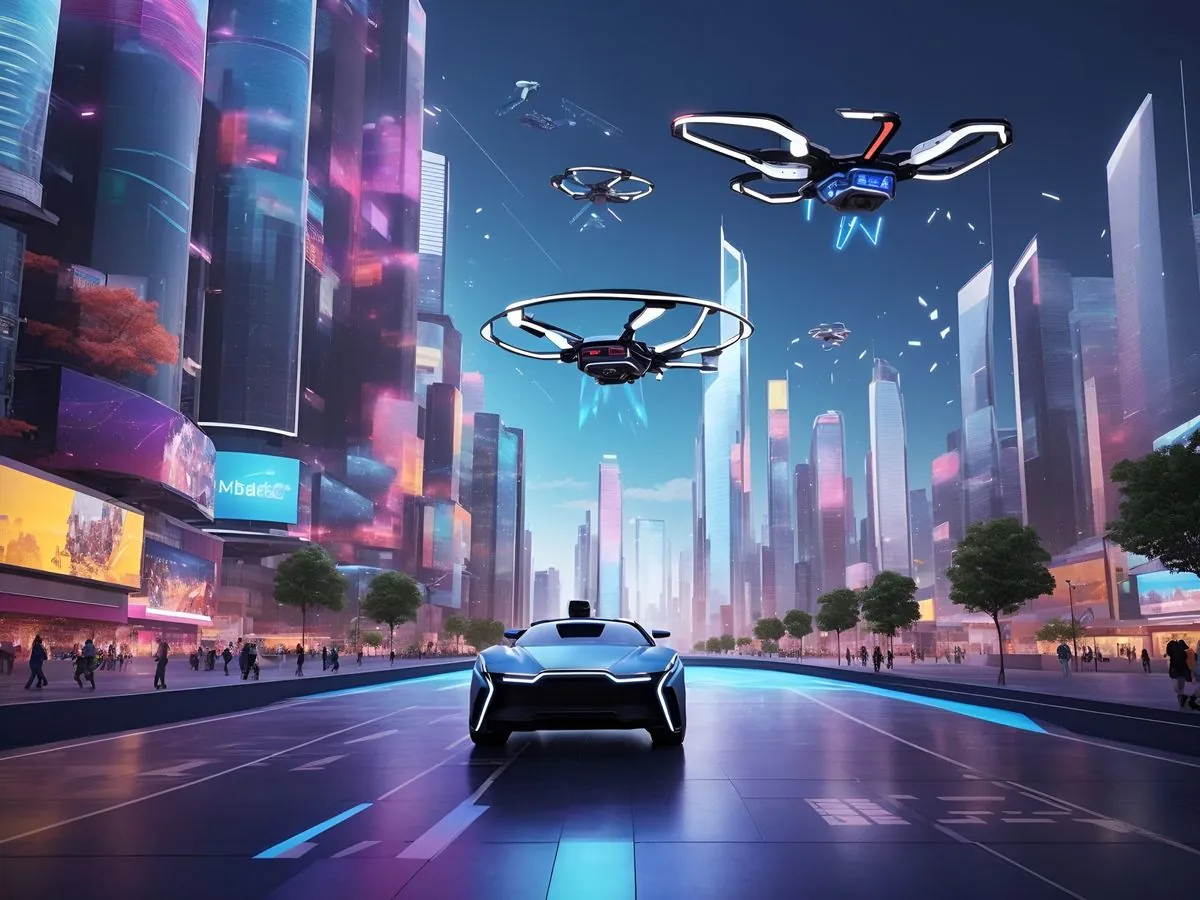AI's Omnipresence Explored in Helen Phillips' Chilling Novel "Hum"
Helen Phillips' "Hum" delves into a world where AI permeates every aspect of life. Through elegant prose, the novel examines privacy, climate change, and the consequences of technological saturation.

In Helen Phillips' novel "Hum," the author presents a chilling vision of a world saturated with artificial intelligence. The story follows May Webb, a mother who agrees to alter her face in exchange for money, hoping to provide a better life for her family.
Phillips' narrative unfolds in a dystopian setting where AI has become omnipresent. Self-driving vehicles, known as "vees," roam the streets alongside humanoid robots called "hums." These machines, capable of various tasks from medical procedures to law enforcement, represent the pinnacle of AI integration into society.
The novel explores the implications of constant surveillance and data collection. May refers to ubiquitous cameras as "cams," highlighting their normalization in everyday life. This reflects the growing prevalence of surveillance technology in our current world, raising questions about privacy and personal freedom.

Climate change plays a significant role in the story's backdrop. The forest of May's childhood has burned down, echoing the increasing frequency of wildfires globally due to rising temperatures. This environmental degradation serves as a stark reminder of the consequences of unchecked technological progress.
Phillips delves into the concept of digital escapism through "wooms," personal devices that stream curated content. These pods offer a form of solace in a world plagued by environmental and social issues, mirroring our current reliance on personalized entertainment platforms.
"Not to watch anything, just to be alone. Maybe ensconce herself in a still image of tree trunks and a recording of forest sounds. Water dripping off pine needles. A capsule of solitude. Automatic meditation. Dissolve into it, numb your brain, soothe your body, reset yourself."
The novel takes a dramatic turn when May and her family visit the Botanical Garden, a walled paradise reminiscent of tech companies' closed ecosystems. Their decision to disconnect from technology during this visit leads to unforeseen consequences, highlighting our dependence on digital devices for safety and communication.
"Hum" also explores the impact of public scrutiny in the age of AI. As May's reputation unravels, the story examines how technology amplifies the age-old human tendency to judge and ostracize.
Phillips' writing style is praised for its elegance and perceptiveness. The novel avoids heavy-handed moralizing, instead offering a nuanced exploration of the complex relationship between humans and technology.
In conclusion, "Hum" presents a thought-provoking examination of AI's potential future impact on society, privacy, and human relationships. Through its compelling narrative and well-crafted prose, the novel encourages readers to reflect on the trajectory of our increasingly AI-driven world.


































